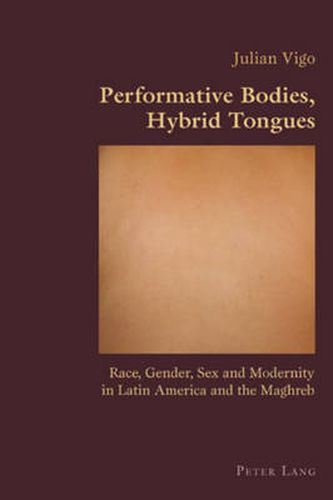Readings Newsletter
Become a Readings Member to make your shopping experience even easier.
Sign in or sign up for free!
You’re not far away from qualifying for FREE standard shipping within Australia
You’ve qualified for FREE standard shipping within Australia
The cart is loading…






This book reconsiders the body in literature and makes a case for visual representation as a physical and gesticulative domain for rethinking the constructions of gender, nationalism and sexuality. Examining literary production from the eleventh century until the present, the author argues that the body in contemporary North Africa and Latin America serves as a physical and symbolic terrain upon which sexual, textual, national, racial and linguistic identities are vectored and through which postcolonial and hegemonic antagonisms of power and identity are resolved.
Rather than embracing third world identity as a residual repository of western thought, colonization and linguistic infusion, the author suggests that the paradigm of cultural identity in the Maghreb and Latin America is best understood through an examination of the emergent corporeal articulations of subjectivity prevalent in these literatures and visual cultures. The text examines the body as a critical landscape through which the various discourses of nationhood, gender and sexuality converge in order to construct a reading of the social that neither amasses subjectivity as singular under the rubric of the third world , nor couches the other within static notions of gendered, sexual or racial identities.
$9.00 standard shipping within Australia
FREE standard shipping within Australia for orders over $100.00
Express & International shipping calculated at checkout
This book reconsiders the body in literature and makes a case for visual representation as a physical and gesticulative domain for rethinking the constructions of gender, nationalism and sexuality. Examining literary production from the eleventh century until the present, the author argues that the body in contemporary North Africa and Latin America serves as a physical and symbolic terrain upon which sexual, textual, national, racial and linguistic identities are vectored and through which postcolonial and hegemonic antagonisms of power and identity are resolved.
Rather than embracing third world identity as a residual repository of western thought, colonization and linguistic infusion, the author suggests that the paradigm of cultural identity in the Maghreb and Latin America is best understood through an examination of the emergent corporeal articulations of subjectivity prevalent in these literatures and visual cultures. The text examines the body as a critical landscape through which the various discourses of nationhood, gender and sexuality converge in order to construct a reading of the social that neither amasses subjectivity as singular under the rubric of the third world , nor couches the other within static notions of gendered, sexual or racial identities.